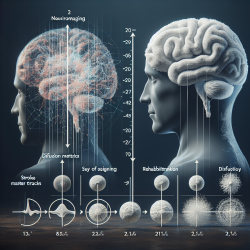Introduction
The Vietnam Head Injury Study (VHIS) offers an unparalleled glimpse into the long-term effects of traumatic brain injury (TBI) and its implications for cognitive rehabilitation. This extensive study, spanning over 40 years, provides critical insights that can enhance the skills of practitioners working with children who have sustained brain injuries. By integrating these findings into practice, we can create better outcomes for young patients.
The Vietnam Head Injury Study: A Brief Overview
Initiated in the late 1960s, the VHIS followed a cohort of 1,221 Vietnam veterans who suffered penetrating brain injuries. This study has been instrumental in advancing our understanding of TBI and has led to over 80 published papers. The findings have significant implications for various fields, including neuropsychology, neurology, and speech-language pathology.
Key Findings and Their Applications
Several key findings from the VHIS can directly inform and improve therapeutic practices:
- Neuroplasticity and Recovery: The VHIS highlights the brain's remarkable ability to reorganize and adapt following injury. Practitioners can leverage this understanding by designing interventions that promote neuroplasticity, such as targeted cognitive exercises and speech therapy techniques.
- Predictors of Cognitive Decline: The study identifies pre-injury intelligence as a strong predictor of cognitive outcomes post-TBI. This emphasizes the importance of early assessment and individualized intervention plans that consider a child's cognitive baseline.
- Impact of Lesion Location: Findings on the effects of lesion location on cognitive and behavioral outcomes can guide practitioners in tailoring interventions to address specific deficits, such as language processing or social cognition.
Encouraging Further Research
While the VHIS provides a wealth of data, there is still much to learn about TBI in children. Practitioners are encouraged to engage in further research, particularly in areas such as:
- The long-term impact of TBI on language development and communication skills.
- The effectiveness of different therapeutic approaches in promoting recovery and adaptation.
- The role of family and environmental factors in supporting rehabilitation efforts.
Conclusion
The Vietnam Head Injury Study offers invaluable insights that can enhance the practice of speech-language pathologists and other professionals working with children who have experienced brain injuries. By applying these findings, practitioners can make data-driven decisions that improve outcomes and help unlock the full potential of every child.
To read the original research paper, please follow this link: “Studying Injured Minds” – The Vietnam Head Injury Study and 40 Years of Brain Injury Research.










